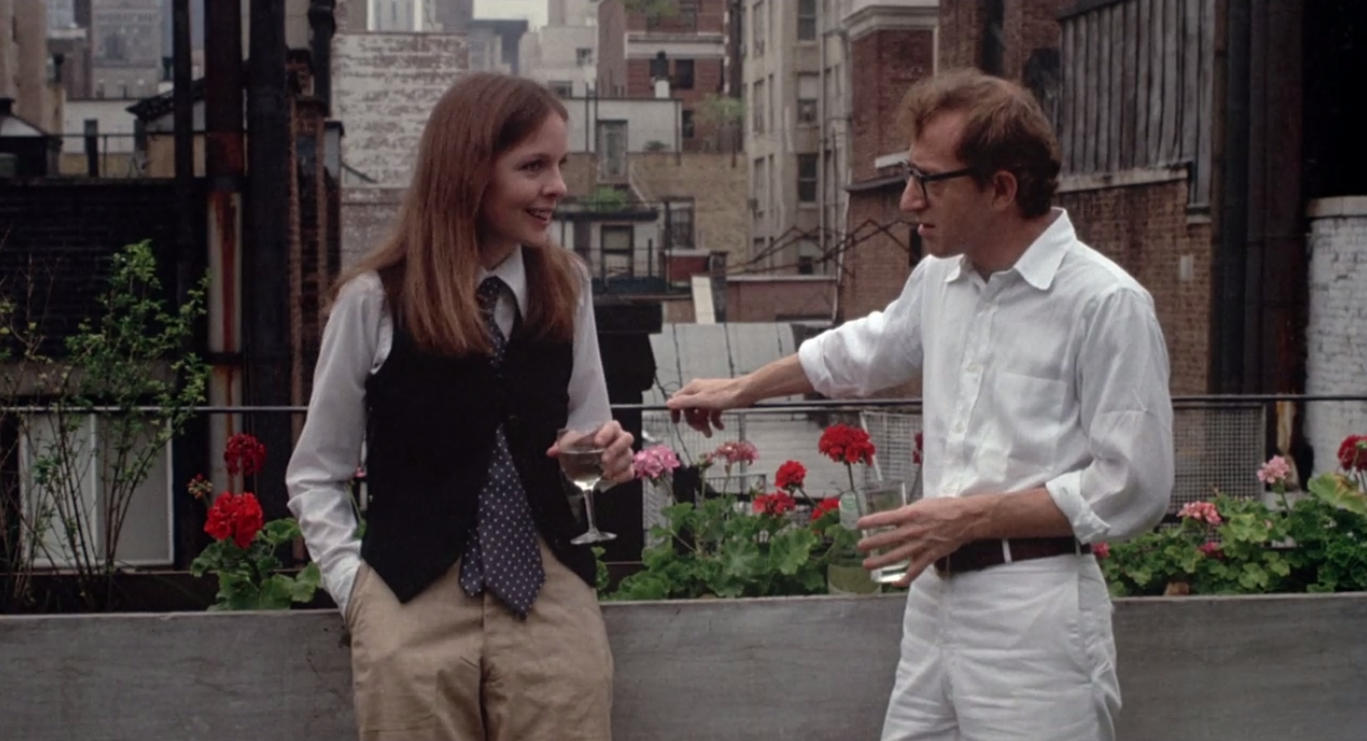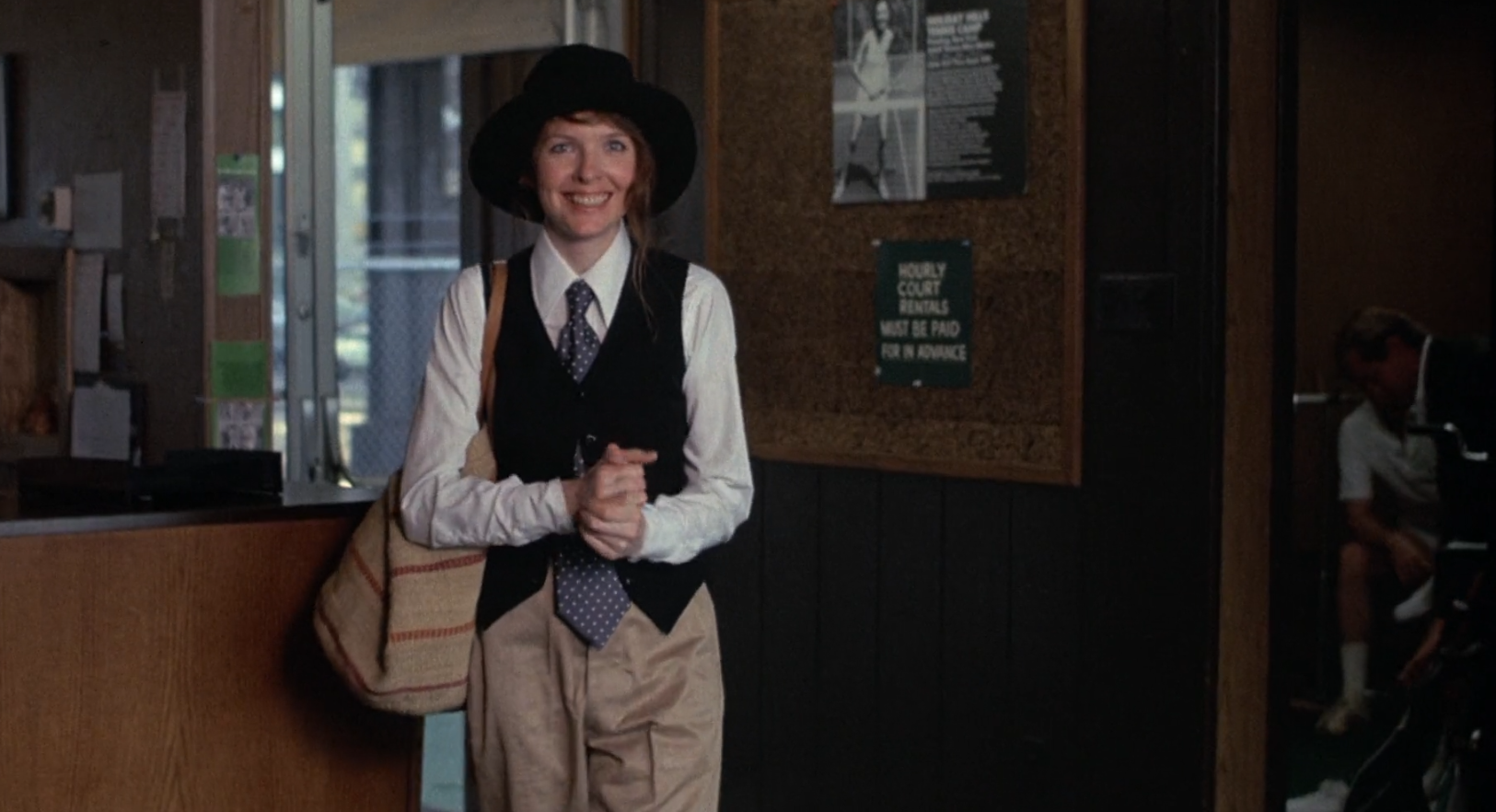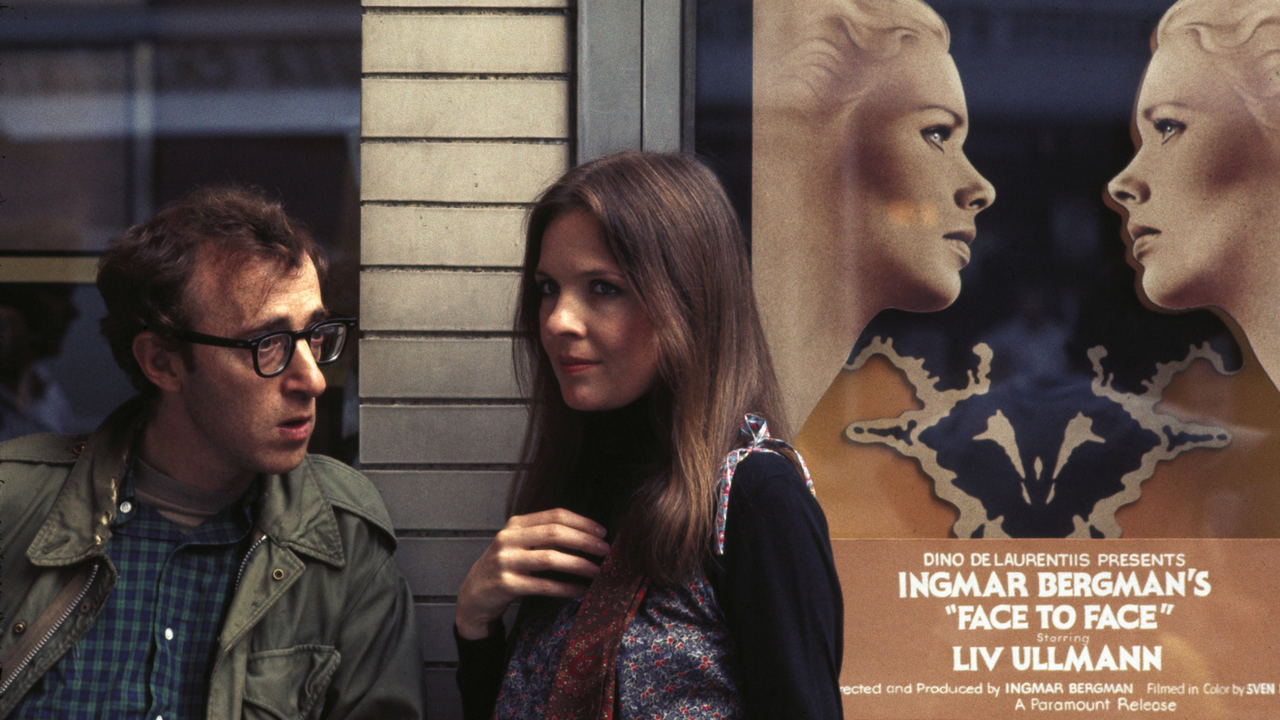Summary:
A neurotic New York Comedian falls in love with a ditzy girl.
My Thoughts:
I go back and forth on my opinion of Woody Allen. He’s a very prolific director (he makes a movie a year) and of the movies I’ve seen by him, I’ve really enjoyed about half and couldn’t have cared less about the other half. “Annie Hall” has always been revered as one of his better films, but I’d never really heard much about it from any of my close cinephile friends. I stumbled upon this last night on Netflix, while searching for something to watch, and decided I’d give it a go. Within the first scene I was hooked. This is easily my favorite Woody Allen film I’ve seen- it’s incredibly smart, thoughtful and funny, but even though I really enjoyed myself, I struggled with whether to give this film a 4/5 or a 4.5/5. I decided on a 4.5/5 because I believe this film was very influential; there are some flaws in this film, but they’re done with so much grandeur that its hard to really take too much issue with them.
“Well, I have to go now, Duane, because I’m due back on planet Earth.”
Alvy Singer (Woody Allen, “Manhattan”) is a neurotic New York comedian who has just broken up with his girlfriend, Annie Hall (Diane Keaton, “The Godfather”). Over the course of the film, Alvy recounts his relationship and life in a pseudo-fantastical way.
The writing for this film is what sells it. This might be the pinnacle of neurotic cinema. Everything about this movie is uneasy and nervous but still slightly funny. Alvy’s character, played by Allen himself, is a smart character, but a bit abrasive. Honestly, it was difficult for me to really like him at first; primarily because of the way he approaches sex almost from the first scene of the film. In one of the opening scenes, Alvy as a young boy leans over and kisses a girl sitting beside him in his classroom on the cheek. When the girl expresses disgust and the teacher scolds him, full grown Alvy shows up to defend his younger self’s actions, saying that he was just expressing a healthy sexual interest. It’s made to be played off for laughs- a young boy innocently kissing a girl- but in today’s culture it feels kind of weird, particularly coming from Woody Allen, whose personal history is a little murky. There are a few other scenes of similar questionability; the references are never so bad that it made the film annoying to watch, but they are such that, if I were to watch this with a more conservative audience, I’m sure they would not approve.
There are a few gags that also run too long. One particular gag is when Woody Allen and Diane Keaton are standing in line waiting to buy movie tickets, and during this scene a cinephile spouts his opinions on the films of Fellini and Samuel Fuller (nothing like pandering to the audience). Allen talks at the camera, to Keaton, to the man who wont shut up, and eventually to a filmmaker who had been hiding off camera. This gag comes rather early in the film, and it feels as if Allen is still trying to introduce the viewer to the rules of his world, letting them know that there will be a lot of fourth-wall-breaking and storytelling quirks, but the scene just seemed to stretch on until the joke wasn’t funny anymore. There are a few scenes where something like this happens- the joke just wears out it’s welcome- but there are also a few scenes where the joke is taken so far that it goes beyond not being funny and becomes hysterical again. However, when the jokes land, they land hard, which is one of the reasons I have given this film such a good review. Yes, it has flaws, but it’s also incredibly well done, heartwarming, and captivating.
I think the thing I liked the most about the film was the unusual style of filmmaking- that kind of devil may care attitude works wonders for this story in particular. Alvy is a quirky character that seems to talk with nervous compulsion about whatever he needs to get off his chest, and the way that this movie plays out feels as if we’re watching this story through Alvy’s brain. Have you ever read David Foster Wallace, the postmodern writer whose work is riddled with endnotes and footnotes and random information that doesn’t really need to be there, but it somehow enhances the story? Well, that’s what this movie feels like- it feels like we’re watching a movie, and then suddenly Allen thinks of something and he throws in an endnote for us to watch; he’ll continue for a while and then jump over to another sidebar. It keeps things fresh and interesting, plus, it adds a lot of humor to the film, and allows Allen to make things a little more fantastical than they might be in reality. I was reminded of movies like “(500) Days of Summer” and “Eternal Sunshine of the Spotless Mind” while I watched this, because of the way that the relationship slowly unveils itself and the way the story unfolds, which is probably the most impressive part.
Both Allen and Keaton are wonderful as their characters. Allen’s character is great because he’s not exactly likeable at the beginning, but his nervous demeanor eventually starts to grow on you. Keaton is simply charming as Annie Hall, and her character is also the more dynamic of the two, so its fun to watch her grow.
Verdict:
I know a lot of the top two paragraphs of this review were just me complaining about a few minor qualms with this film, but that’s what they are: minor. A majority of this movie is absolutely astounding, and really funny to boot. This film won four Oscars: Best Picture, Best Actress (Keaton), Best Original Screenplay, and Best Director, and it lost out on Best Actor (Allen). This is a marvelous comedy, and probably one of the most influential romance movies I’ve seen. I absolutely recommend it.
Review Written By:






